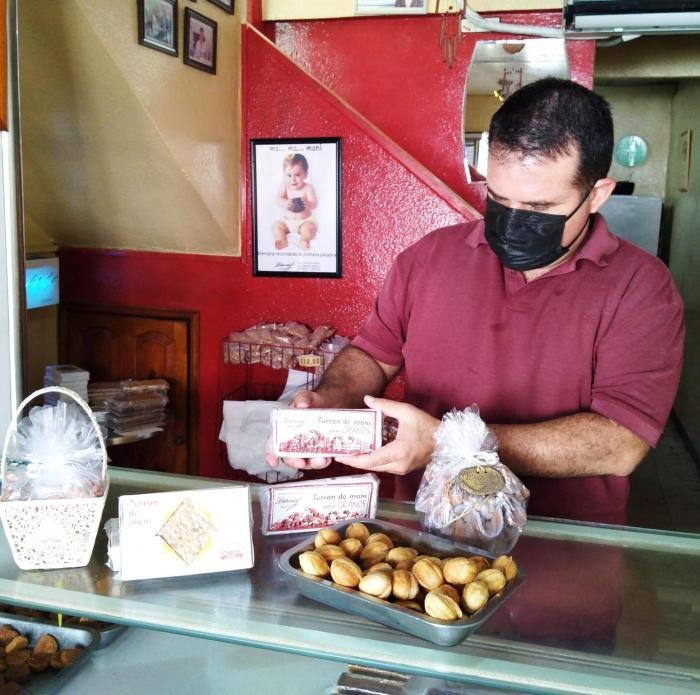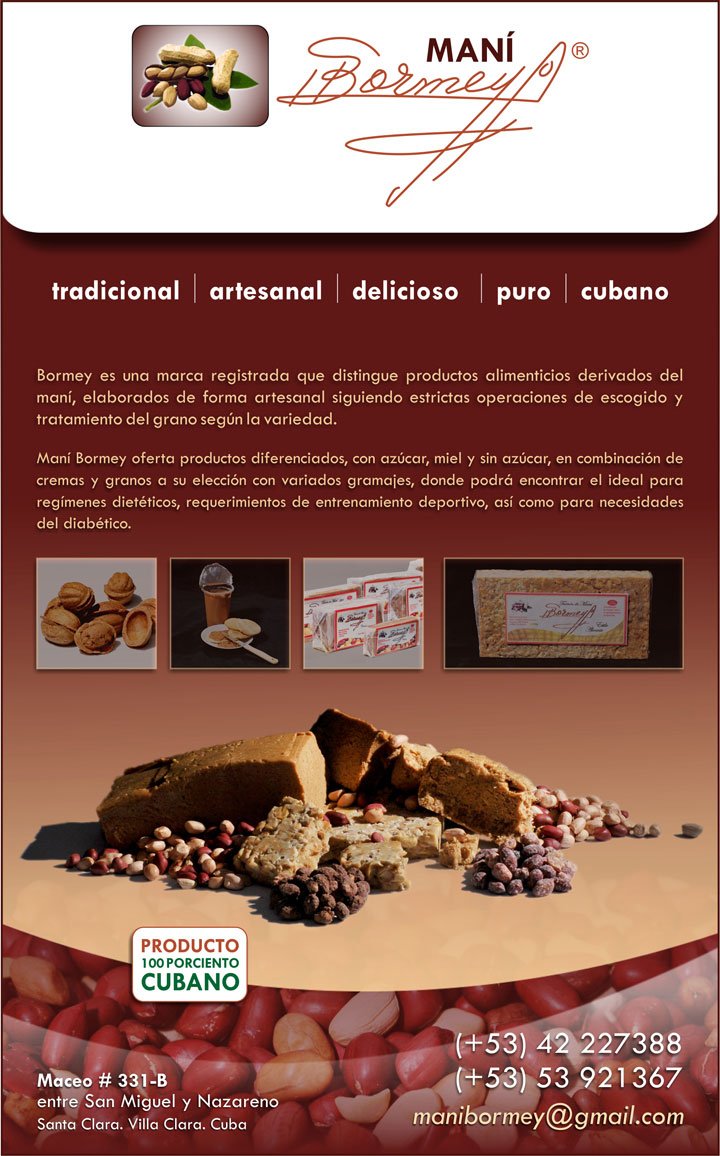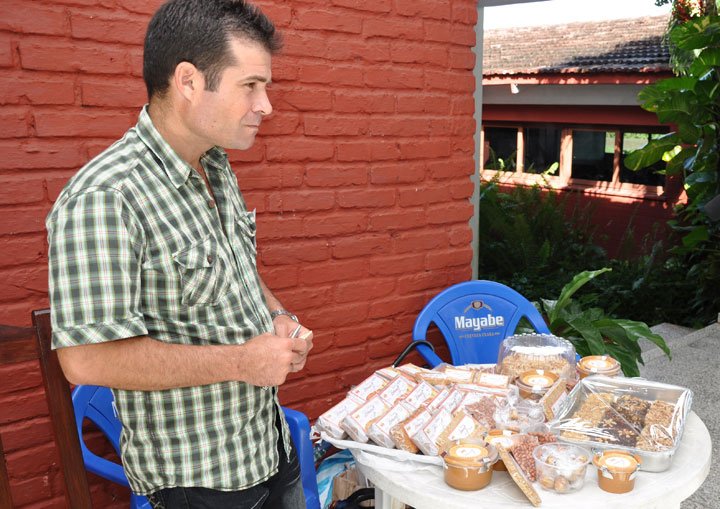NOTE: Mr. Marino Murillo leads the Permanent Commission for the Implementation and Development of the Guidelines of the Communist Party of the Republic of Cuba (PCC).
Prensa Latina News Agency
Havana, Republic of Cuba
27 October 2021
Havana, Oct 27 (Prensa Latina) The purchasing power of Cubans was greatly affected after nine months of monetary regulation, due to inflation higher than expected, explained today the head of the Commission for the implementation of the Guidelines, Marino Murillo .
Before the deputies to the National Assembly of People's Power (parliament), the official detailed some of the results observed after the implementation of this task on January 1 of this year, which implied wage and price reforms, and the elimination of the monetary and exchange duality.
The designed retail inflation predicted a growth of 1.6 times in total sales, while the population's income would do so around five times, which meant an increase in the consumer price index of 60 percent, said Murillo. However, the reality shows a significant deterioration in the purchasing power of the population, fundamentally of the lower-income sectors, he added, and exemplified that the basic basket of goods and services was 1.85 times higher than the planned design and, therefore, Therefore, it was above the minimum pension that took that value as a reference.
The supply deficit, where the crisis generated by Covid-19, the economic blockade of the United States and its coercive measures on the island, among other factors, have a negative effect on the implementation of the ordinance. Other elements are added, such as the increase in the prices of transport, construction materials and food, as well as an informal exchange rate that fluctuates around the value of one dollar for each Cuban peso, when the official rate is one per 24.
This exchange rate difference, although it occurs in the underground market, generates an inflation of 6,900 percent and impacts all economic actors, said Murillo.
In this sense, he warned of the risk that this represents, since on the one hand raw materials are acquired under an exchange rate (1x24), while prices are formed under the other (1x70), which allows different economic actors to generate profits although do not generate wealth. This can have an impact on imported products having lower prices than national ones, in an economy that needs to produce and generate offers, in addition to being one of the distortions that the ordering task sought to eliminate.
The head of the Implementation Commission commented that according to studies carried out in more than 1,800 business structures of different conformation, in this sector the design foreseen at the beginning of the year has been generally fulfilled, since they managed to make the necessary adjustments and greater transparency of accounting. However, retail inflation and circulating money are alerts for the design of the economy plans and the budget for 2022.
To achieve a monetary balance, the State had to collect 92 percent of people's income, but the calculations point to figures that are around 67 percent, while there are more than 59 billion pesos (2.458 billion dollars ) On circulation. Faced with these realities, the government adopted 35 measures to stop inflation, but the business sector has to react and produce wealth, Murillo stressed, adding the need for greater participation by national producers to meet the demands. Likewise, greater control of liquidity in the hands of the population and compensatory measures are needed to care for the most vulnerable.
Granma
Havana, Republic of Cuba
27 October 2021
What has been the impact on the economy after the implementation of the Ordering Task? (+ Video)
Murillo Jorge explained that the financial statements presented by the companies to the National Office of Statistics and Information have been taken as a source of information, and that these data are expressed in Cuban pesos with the exchange rate of 1x24, where appropriate.
Author: Yaditza del Sol González
Marino Murillo said that retail inflation, higher than designed, has reduced the purchasing power provided by the wage reform, the growth of pensions and Social Assistance, especially in the lower-income sectors. Photo: Ariel Cecilio Lemus
A look, from the economic point of view, at the results of the implementation of the Ordinance Task, its impact on the business system, as well as wholesale and retail inflation, and the changes in the current monetary environment, offered to the deputies Marino Murillo Jorge , head of the Permanent Commission for the Implementation and Development of the Guidelines.
As part of the implementation, he explained, a temporary work group was created, taking into account that it was necessary to rectify, on the fly, design problems and make adjustments to the process, as initially anticipated, also based on the difficult situation presented by the national economy and deviations from the context in which the ordinance had to be carried out.
To date, he pointed out, this group has held 93 meetings and 294 issues have been presented, while 256 decisions have been made, which led to the issuance of 171 legal norms, of which 30 are already in process. To measure the results of the implementation of the Regulation, it is necessary to make a comparison against the design of the Task itself, that is, to see what has happened in practice in recent months, he argued.
As part of this reflection, Murillo Jorge explained that the financial statements presented by the companies to the National Office of Statistics and Information have been taken as a source of information, and that these data are expressed in Cuban pesos with the exchange rate of 1x24, in the corresponding cases.
Until the end of the second semester –since some financial indicators were carried up to the month of August–, net sales in the business system are in the order of 308 billion and 14 billion of exports, he said. "The profits, in an environment of devaluation of the peso in the first semester, were 33 billion."
He affirmed that there are accumulated losses of about 7 billion, and 82% are concentrated in the agricultural sector, provincial commercial activities and others subordinate to the territorial government, among others. Some companies, technologically similar, had losses and others did not, the latter tell us about their ability to withstand devaluation and management efficiency, he clarified. On the expenses for losses and shortages of assets, 1,609 million pesos are recorded, of which 632 million in the company Medicuba S.A. and 572 in the Provincial Commerce Company of Havana, 75% of the total.
Before the Ordering Task, in a 1x1 environment, for each peso of sale the companies received 14 cents from the Budget, which implied that a company that received a subsidy from the State could have profits and, in addition, distribute it among its workers, said the Head of the Permanent Commission for the Implementation and Development of the Guidelines. Now, he said, he stayed at four cents, and that is a positive result of the Ordinance, since the subsidy is reduced to the inefficiencies of the business system.
Of those four cents, 75% - he mentioned - are associated with the consumption subsidy, which for next year, if prices stabilize, will gradually be eliminated, and then we would be talking about not subsidizing products, but people, which is the objective. Referring to the profitability of business structures, he pointed out that, on average, they work with 17%, and that some companies, such as the agricultural sector, work with a lower rate, specifically 6%.
WHAT HAPPENS TO WHOLESALE AND RETAIL INFLATION?
Murillo Jorge indicated that for the first year a devaluation of 2,300% was designed in the wholesale circuit, with a wholesale inflation target of 1,200%, and according to the estimates for the end of the year, this figure will not be reached. “The expected adjustment of the economy, that wholesale prices would grow less than the devaluation, was achieved. The problem is in retail inflation. He argued that whenever it devalues in those magnitudes, there is price growth and, therefore, inflation.
On the other hand, in the informal currency market there is an exchange rate of 1x70, which represents an inflation of 6,900%, and affects both wholesale and retail inflation, he said.
«This translates, for example, into the fact that an economic actor that obtains raw materials in the environment of state-owned companies (1x24) and sets a price in the 1x70 area, is going to have large profits without being very efficient or productive, and that it can be taxed to increase inflation conditions in the future ».
"Furthermore, if prices in the domestic economy are formed on the basis of 1x70, and imported prices are multiplied by 24, then domestic products would be more expensive than imported ones." To regulate this, the Ministry of Finance and Prices is working on a wholesale price policy for 2022, in order to manage these exchange rate differences, he reported.
Among the recommendations to develop this policy is to take into account the behavior of the prices of the foreign investment sector and other actors, given that they have grown at a higher rate, as well as the incidence of the exchange gap in the formation of prices. of non-state economic actors. In short, he continued, in the business system the peso was devalued, a process of correction of relative prices began, the designed economy was adjusted and accounting has become transparent.
Regarding retail inflation, he explained that according to the design of the Task, total sales were going to grow 1.6 times and the income of the population, five times, and under that calculation the decision was made to do the Ordering and wage reform. All the salaried workers were supposed to be better than before the Task; more, in practice it has happened that people are facing prices up to ten times higher than expected in retail inflation, he explained.
"Where retail prices grow the most is in transportation, in housing (for example, buying building materials), and in food, and all of this has a great impact on domestic life," he said.
On the other hand, the average salary is 3,888 pesos, and the reference basket of goods and services designed was 1,528 pesos, which was what a person should consume in the month; However, the cost levels of that basket have been rising, especially in Havana and in the eastern provinces, he said.
For example, in March that basket was 2,347 pesos, in May 2,628 pesos, in June 2,700 pesos and in August 2,821 pesos, he said. "This last value, the one for August, is 1.85 times the cost of the basket that we made to calculate the minimum pension, which means that those who have a pension and minimum wage, today are not consuming what was planned." And while anti-inflationary measures were designed, they did not have all the desired effect, he added. "Today a Cuban eats something on the street is costing him twice as much as designed."
All this means that retail inflation, higher than designed, has reduced the purchasing power provided by the salary reform, the growth of pensions and Social Assistance, especially in the lower-income sectors, he said. He emphasized that, if we want there to be a monetary balance, the State has to collect 92% of the population's monetary income, and according to the latest estimates, the figures are around 67%.
Finally, he mentioned that the scenario in which the development of the economy has become very complex as a result of the intensification of the economic blockade of the US Government, the worsening of the COVID-19 pandemic, and the consequences of the international economic crisis. The combined effects of the situation on the economy and the expected processes of the Ordinance have generated manifestations not associated with what was designed, he pointed out.
Although main risks were identified, including inflation, there are objective conditions that favor inflationary risks such as the supply deficit, the increase in the population's income, which increases its solvent demand, the exchange rate of the informal market by above the official, and the high fiscal deficit, he commented.
Murillo Jorge added that one of the main impacts of the Ordinance process is the devaluation of the CUP, which has made it possible to advance in the complex process of correction of relative prices in the business sector, leading to a real devaluation. As a final recommendation, he called on the business system to take advantage of this correction, as well as to apply the measures designed to make its management more efficient.
Diario de Cuba
Madrid, Spain
28 October 2021
Marino Murillo, known as the czar of the economic reforms of the PCC
By Irene Pérez cubadebate
The head of the so-called Permanent Commission for the Implementation and Development of the Guidelines of the Communist Party of Cuba (PCC), Marino Murillo Jorge, admitted to the National Assembly of People's Power on Wednesday that "retail inflation has been the main deviation of the Task Ordering ".
"The costs of the reference basket of goods and services are almost double the numbers designed, while the purchasing power that the wage reform gave has been 'greatly affected', fundamentally in the lower income sectors," said Murillo, according to picked up the official website Cubadebate.
The so-called "czar of economic reforms" of the PCC acknowledged that after the start of the regulation the authorities had to "adjust certain decisions", due "to design problems and the process of putting into practice the monetary and exchange unification, as well as due to deviations derived from the difficult context that the Cuban economy has experienced ".
In this regard, he said that up to August "256 decisions had been approved (change in the electricity rate and the salary scale of the rum masters, for example) and 171 legal norms had been issued."
Without going into details, he added that of the total, 234 decisions have been complied with —with 155 legal norms—, while ten are in process, nine are pending, two are unfulfilled and one was without effect. In the words of the official, measuring the result of the Ordering Task "is not saying whether it went well, badly or partially", since it must be compared with the design of the measure to "have a more realistic idea of how things have been in details. ".
For this year, he reminded him, a wholesale inflation of 1,200% was designed. In January, prices grew 224% compared to December, in February 12% more, while in June against May it grew 6.53%, he exemplified. This situation had to do with the increase in the cost sheet of the electricity and tobacco company, according to the data presented.
Murillo Jorge announced that the expected adjustment in the economy of wholesale prices growing less than the devaluation level designed was achieved. "The problem is retail inflation, not wholesale inflation," he said.
The growth in prices of state-owned companies (222% inflation) is below design. "The inflation that has occurred wholesale in the business sector has been giving it a profitability of 11% and that of foreign investment a 28% profitability," he added. Murillo Jorge admitted the existence of "many deficiency problems", and justified that profitability should also be influenced by pricing policy.
Regarding the informal market, he said that it already has an inflation of 6,900%, influencing both the retailer and the wholesaler. "The strategic objective of the ordering task was for national productions to be cheaper than imports. But if a price of 1x70 is formed, national productions would be more expensive," he said.
Given this, the Head of the PCC reforms said that "work is being done by the Ministry of Finance and Prices, because a wholesale price policy is necessary to manage these different exchange rates in the economy."
Regarding retail inflation, he recalled that according to the "Task design", total sales were going to grow 1.6 times and the population's income five times, and under that calculation the decision was made to make the Regulation and salary reform. "All of us were supposed to be better off than before the Task; but in practice it has happened that people are facing prices up to ten times higher than expected in retail inflation," he admitted.
He said that "where retail prices grow the most is in transportation, in housing (for example, buying building materials), and in food, and all of this has a great impact on domestic life."
"The average salary is 3,888 pesos, and the reference basket of goods and services designed was 1,528 pesos, which was what a person should consume in the month; however, the cost levels of that basket have been increasing, especially in Havana and in the eastern provinces, "he added. "For a Cuban to eat something on the street today is costing him twice as much as designed," he said about a situation that has been hitting the population for months.
The translation of all this is that "the purchasing power provided by the salary reform, the growth of pensions and Social Assistance has been reduced, especially in the lower income sectors," he acknowledged. In the official's words, to achieve "a monetary balance, the State has to collect 92% of the population's monetary income, and according to the latest estimates, the figures are around 67%."
For Cuban economist Pedro Monreal, "in the absence of positive results, the 'system' seems to move towards an anti-inflationary program based on the controversial capacity of centralized planning to create business efficiency, and on a welfare vision of poverty alleviation." The analyst said in his account on Twitter that "the main bet of the anti-inflation program seems to be the offer response of the state company, but it works in a centralized planning scheme that has not worked well anywhere else." For Monreal, "a safer bet would have been to support private agriculture."
"The initial design of the 'ordinance' adopted a problematic sequence: hitting the demand without first ensuring responsiveness. What happened was not inevitable. The design imaginary failed," he said. On the other hand, for Monreal, informing "that the greatest monetary liquidity occurs in a context in which income has been 'polarized' is a 'pious' way of saying that 'ordering' has increased inequality. It was also said that could be the subject of a 'long conversation'. When? "he wondered.































